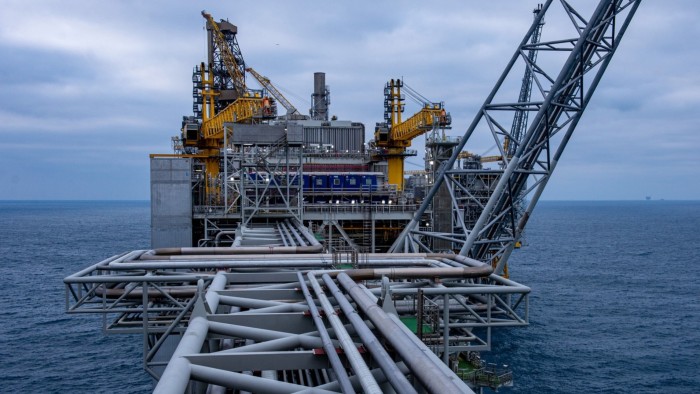Unlock the Editor’s Digest for free
Roula Khalaf, Editor of the FT, selects her favourite stories in this weekly newsletter.
The Norwegian state-backed energy group that dropped oil from its name as part of a push into renewables is pivoting back to fossil fuels in the hunt for shareholder returns.
Equinor, renamed from Statoil in 2018, said on Wednesday that it was planning to increase production of fossil fuels and halve its spending on renewables, with chief executive Anders Opedal saying it was aiming to “create shareholder value for decades to come”.
Under its new targets, the company plans to produce 2.2mn barrels of oil equivalent a day by 2030, 10 per cent higher than previous expectations.
It lowered its target for renewables capacity to 10GW-12GW from a previous target of 12GW-16GW. Investment in renewables and other low-carbon technology between 2025 and 2027 will be cut to $5bn, down from about $10bn previously, excluding project financing.
“Equinor is well-positioned for further growth and competitive shareholder returns,” Opedal said as the company released its results for 2024.
The group now expects stronger free cash flow, which would be achieved “by high-grading the portfolio, reducing the investment outlook for renewables and low-carbon solutions and improving cost across our organisation”, he added.
Opedal said the company’s overall strategic direction had not changed and that it still aimed to reach “net zero” emissions by 2050.
“We continue to reduce emissions from our production and build profitable business in renewables and low-carbon solutions,” he said. “By adapting to [the] market situation and opportunities, we are set to create shareholder value for decades to come.”
Equinor’s move comes after Shell and BP diluted plans to diversify away from fossil fuels under pressure from shareholders to keep providing oil-and-gas-level returns.
Analysts expect BP to drop or scale back its target for renewable capacity by 2030 at an investor day this month.
Vitol, the world’s largest independent energy trader, said this week that global demand for oil would not fall until at least 2040, while US President Donald Trump pledged last month to “drill, baby, drill” to exploit the country’s oil resources.
Equinor’s announcement comes after it said in October it was buying a near 10 per cent stake in the world’s largest offshore wind developer Ørsted.
That move will bring Equinor closer to its renewables targets for less money than it would cost to develop the capacity from scratch by itself.
https://www.ft.com/content/be715bae-2acd-4d85-8186-33013d3da92d


